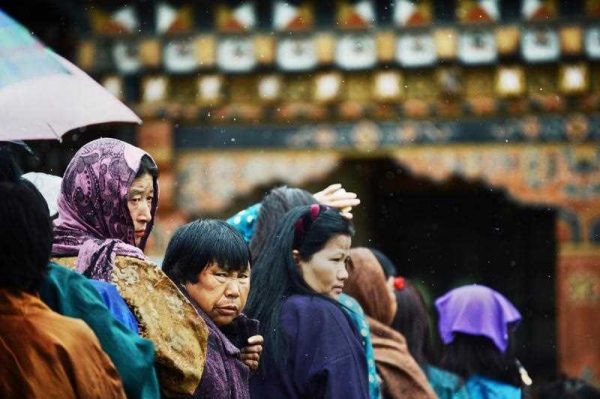Elections are the most visible symbols of democratic rule. There have been two national elections — in 2008 and 2013 — to choose the members of the partisan National Assembly and the non-partisan National Council.
The system seems to be working well. The 2013 election saw greater political competition with two new parties running alongside the two original parties for the National Assembly. And there were more candidates for positions in the National Council. This non-partisan body acts as the house of review in the Bhutanese parliament.
In 2013, control of government changed hands from the Druk Phuensum Tshogpa Party (DPT or Bhutan Peace and Prosperity Party) to the People’s Democratic Party after the DPT was unable to entrench itself in its first term. There were very few occurrences of the election malpractices evident in Bhutan’s South Asian neighbours. Electoral violence is virtually unknown and vote-buying is rare. The Election Commission runs a tight ship and vigilantly enforces the long list of electoral rules.
Various institutions associated with good democratic governance have also been performing well. The parliament is orderly and goes about its work with purpose and in a spirit of cooperation. The judiciary seems to be independent and takes its role of guardian of the constitution seriously, such as when it found the speaker and a cabinet minister of the former government guilty of illegal land dealings. The judiciary has also been undergoing modernisation by appointing younger judges with modern legal training.
But it has not just been good news. The turnout for both the 2013 National Council and National Assembly elections fell from the 2008 figures. For the National Council election, only 45 per cent of registered voters turned out, down from 53 per cent in 2008. The preliminary election for the National Assembly (where the two parties contesting the general election are chosen) attracted a 55 per cent turnout. The general election saw 66 per cent of registered voters at the polling stations, down from 79 per cent in 2008.
If these trends continue at the next set of elections in 2018, there will be concerns about how committed Bhutan’s citizens are to democracy. Parties remain weak institutions with low memberships — between 135 and 799 members in 2013 — and are governed by strict rules.
All parties and candidates must promote national unity and the state philosophy of gross national happiness, reflecting the concern for stability in the Bhutanese polity. Another indicator of this is that only two parties can contest the general election. This ensures there will be a government party and an opposition party —no coalitions or shifted allegiances can occur for the duration of the parliament.
Bhutan’s already low female representation fell lower in 2013. No women were elected to the National Council and only four to the 47-person National Assembly. Female candidates were in short supply, a reflection of demography and culture. There are fewer eligible women because all candidates must have a university degree and there are far fewer women with such qualifications. There are also cultural beliefs concerning the role and status of women, which militate against their standing and winning. While the two new parties for 2013 were headed by women, both lost in the preliminary election for the National Assembly.
The constitution guarantees a variety of freedoms to citizens of Bhutan. One is freedom of association. But this has not led to a flourishing civil society. Apart from political parties there are some non-government organisations (NGOs) in areas such as women’s and children’s issues and environment. But NGOs must not stray into areas that might be perceived as threatening national security such as refugees and human rights. There are no trade unions, and demonstrations — though not illegal — simply do not occur.
Freedom of expression is also assured in the constitution. The advent of democracy has led to the considerable growth of mass media, especially newspapers and radio. But while mass media do publish stories critical of government, there appears to be self-censorship. The 2014 Reporters Without Borders ranking of media freedom saw Bhutan slip ten places to 92 out of 180 countries.
Fortunately, social media has taken off. This has provided opportunities for more critical voices via the mobile phones that have penetrated the farthest corners of the remote country.
From the very beginning, Bhutan took an unusual path to democracy. It was decreed by the Fourth King as his ‘gift’ to the nation. But although his citizens could not refuse the gift, the question of whether they have fully accepted it remains unanswered.
Mark Turner is a visiting professor at the University of New South Wales at the Australian Defence Force Academy, Canberra.

